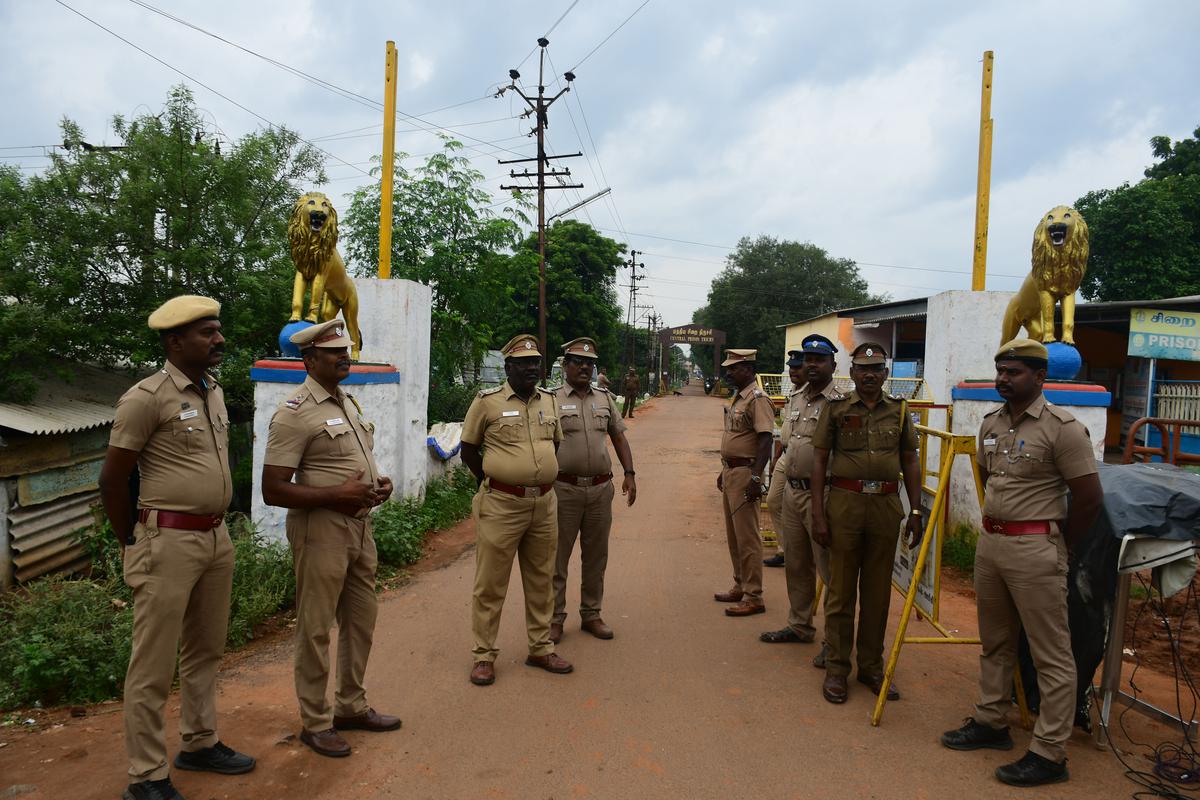
Additional police manpower drawn into Tiruchi after Rajiv Gandhi case convicts lodged at Special Camp
The Hindu
Four of the convicts in the case are at the special camp in Tiruchi; over 50 police personnel have been brought in from the central and south zones for round-the-clock bandobust at the camp
Extra police personnel have been drawn from the central and south zones to scale up bandobust in three shifts at the Tiruchi Special Camp where the four Rajiv Gandhi assassination convicts, Sriharan alias Murugan, Santhan, Robert Payas and Jayakumar, have been lodged after their release from the Central Prison at Vellore and Chennai was ordered by the Supreme Court recently.
The Tiruchi City Police, under whose jurisdiction the Special Camp falls, was provided with additional manpower strength from the central and south zones after a requisition was made by it to the State police headquarters in this regard, to augment bandobust at the camp after the four Rajiv Gandhi case convicts belonging to Sri Lanka were lodged there in the late hours, last Saturday.
Situated near the Tiruchi Central Prison, the Special Camp, which began to function from September 2011, houses over 130 foreign nationals -- a vast majority of whom are Sri Lankan nationals facing criminal charges. The Tiruchi City Police had deployed a strong posse of its police personnel at the camp and its outer periphery once the four convicts were lodged in separate rooms inside.
Police sources said over 50 personnel serving in various districts in the central and south zones have been provided now to the Tiruchi City Police to scale up bandobust in three shifts at the camp which is under constant monitoring and surveillance. The extra strength drawn from the two zones include senior officers in the rank of Deputy Superintendent of Police.
With additional manpower having been provided, the Tiruchi City Police has put in place bandobust in ‘A’ ‘B’ and ‘C’ shifts with teams of police personnel nominated for every shift. A detailed scheme has been drawn up for this purpose with teams deployed in shifts from 8 a.m. to 2 p.m, from 2 p.m. to 9 p.m and from 9 p.m. to 8 a.m. the next morning. A Deputy Superintendent of Police rank officer/Assistant Commissioner of Police has been nominated to head the team in every shift, the sources said. Barricades have been placed at the main entrance leading to the camp.
Personnel of the Tamil Nadu Special Police were deployed much earlier to keep a round-the-clock watch. The TSP personnel with weapons have been posted on the watch towers at vantage spots inside the camp. A host of surveillance cameras are already in place inside and outside the camp. The cameras are connected to the control room to monitor activities inside and outside. The camp is under the administrative and operational control of the Tiruchi Collector.
The sources said branches of a few trees inside the camp were trimmed some time ago after incidents of foreign inmates climbing up the trees to stage protests in support of their demands were reported. A few months ago, National Investigation Agency (NIA) personnel conducted searches in the camp and seized incriminating material that linked some of the inmates to an international drug cartel. Consequent to the NIA searches, the Tiruchi City Police teams conducted searches inside the camp and confiscated over 100 mobile phones from the inmates.











